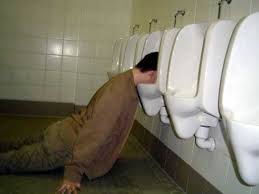记忆方法
将“drunk”与“dr”联想,想象一个人在“dr”的能量(如饮酒)作用下,身体开始变得“unk”失去控制,这样就记住了“drunk”表示醉酒的状态。
以上内容由AI生成, 仅供参考和借鉴
英语词源
- drunk (adj.)
- past participle of drink, used as an adjective from mid-14c. in sense "intoxicated." In various expressions, such as "drunk as a lord" (1891); Chaucer has "dronke ... as a Mous" (c. 1386); and, from 1709, "as Drunk as a Wheelbarrow." Medieval folklore distinguished four successive stages of drunkenness, based on the animals they made men resemble: sheep, lion, ape, sow. Drunk driver first recorded 1948. Drunk-tank "jail cell for drunkards" attested by 1912, American English. The noun meaning "drunken person" is from 1852; earlier this would have been a drunkard.
权威例句
- 1. "Tired and emotional" is a code word for being drunk.
- “又累又激动”是形容人喝醉酒的一种委婉说法。
- 2. Some people moved in silky, liquid movements, others were jerky, probably drunk.
- 一些人动作平稳流畅,其他人则跌跌撞撞,大概是喝醉了。
- 3. The landlord refused to serve him because he considered him too drunk.
- 酒吧老板觉得他已经喝多了,拒绝再给他添酒。
- 4. I had a terrible head and was extraordinarily drunk.
- 我头很痛,已经酩酊大醉。
- 5. He was so drunk that he had lost the power of speech.
- 他醉得太厉害,连话都说不出来了。

